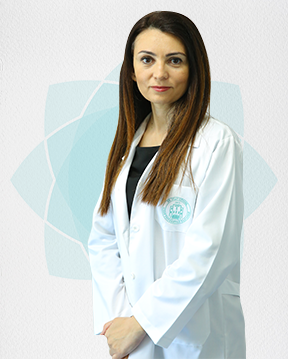
Frequent influenza cases and epidemics occur in winter and it remains high on our agenda. Dr. Suat Günsel University of Kyrenia Hospital Pediatric Health, Pediatric Allergy Immunology Specialist Assoc. Prof. Nilüfer Galip Çelik MD., made a statement about ‘influenza’ commonly known as flu:
“In recent years, we observe a significant increase in the number of patients presenting with flu symptoms. The speed of the spread of disease is related to the changes in its structure. Our body can react more quickly and more effectively against the viruses it has encountered before but it cannot give the necessary effective response to the new viruses. For this reason, viruses that occur in different structure and viruses encountered for the first time, cause the disease to spread very quickly and also lead to outbreaks. In addition, the disease becomes more severe.
“Symptoms such as vomiting and abdominal pain can be seen in children”
In addition to the frequent influenza symptoms such as fever, weakness, headache, and other symptoms such as vomiting, abdominal pain and gastrointestinal symptoms may be seen in children. As these symptoms are similar to cold, the severity of the disease may not be determined at first. It can cause serious complications in elderly, children and those with chronic illnesses affecting the immune system.
The disease is mainly spread by droplets when infected people cough or sneeze. Effective preventive measures include resting and isolation. When patients go out, they should wear a mask if possible. Dirty hands can transmit this disease. In order to prevent the transmission of the disease cover your mouth and nose with a disposable wipe when you cough or sneeze, cough or sneeze into your upper sleeve and avoid sharing items such as towel, cup etc. We recommend you to wash your hands with soap and water for at least 20 seconds and when this is not possible use hand sanitizers. Symptoms and infectiousness period last for 2-10 days. In this period, especially when the severe symptoms of the disease persist sick children should stay home to prevent further spread of disease.
The basis of the flu treatment is resting. In addition, preventive (symptomatic) treatments are also recommended. Patients with flu symptoms should consult a specialist physician; it is important that the treatment initiated by a physician; patients should not use antibiotics or drugs unless recommended by a physician. “